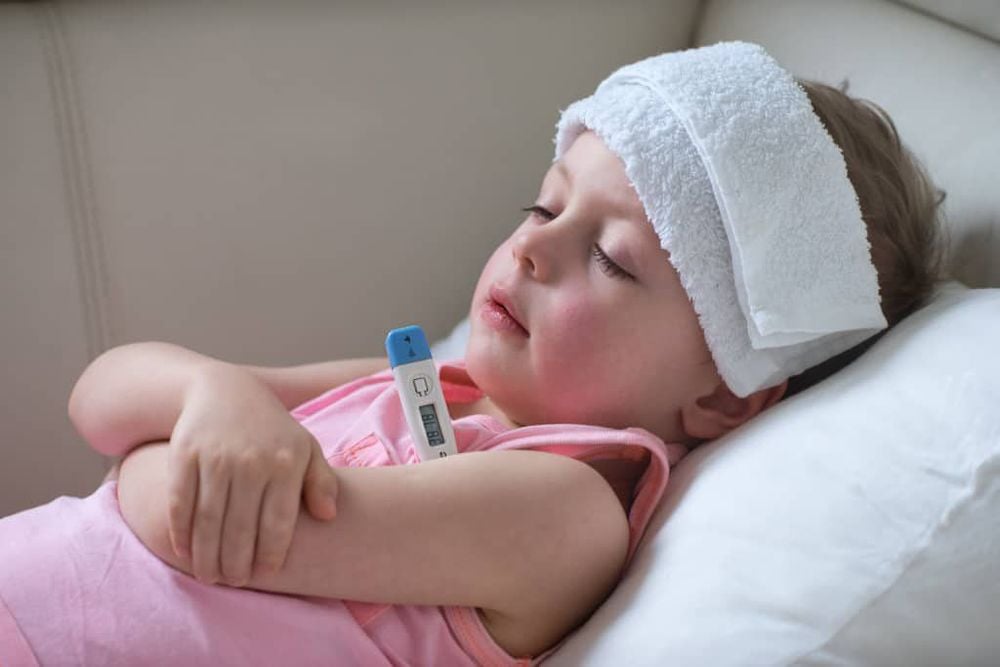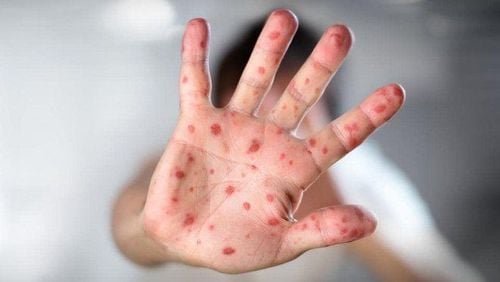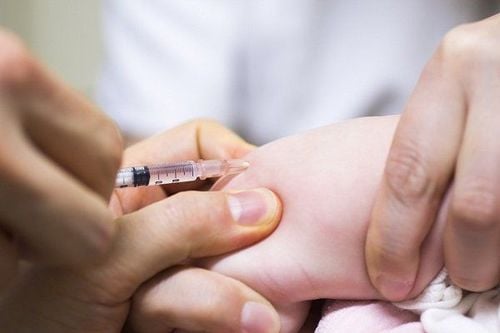This is an automatically translated article.
The article was written by Doctor Le Thu Phuong - Pediatrician - Neonatologist - Vinmec Ha Long International General Hospital.In recent days, meningococcal disease has begun to appear scatteredly in some provinces and cities across the country. Instead of worrying, parents should pay attention to the early symptoms of children, especially should take appropriate precautions to protect their loved ones.
Meningococcal disease is a serious bacterial infection that can kill a healthy child within 24 hours of the first symptoms appearing. Children of any age can get this disease.
Symptoms of meningococcal disease
Early symptomsHigh fever 39 - 40 degrees Nausea and vomiting Irritability, loss of appetite Headache, dizziness Sore throat, runny nose. Late symptoms
Appearance of erythema in thin areas of skin, fingertips, legs Stiff neck, neck pain Fear of light Delirium, confusion Convulsions Loss of consciousness, sensory disturbances Meningococcal disease may transmission through respiratory droplets or droplets, when sharing cups, drinking cups, common activities in the community environment, kindergarten, school...; smokers or people exposed to tobacco smoke...
Meningococcal disease progresses quickly and is dangerous, so your baby needs to be prevented as soon as possible. The most effective method is vaccination.

Khi thấy trẻ bất ngờ sốt cao, cáu gắt, bỏ ăn hoặc xuất hiện ban đỏ, cần nghĩ ngay tới khả năng mắc viêm màng não mô cầu
At what age can children receive the meningococcal vaccine?
Currently, Vietnam has 2 vaccines against strains A + C and B + C - these are highly toxic strains of bacteria. Each vaccine only protects against certain strains of meningococcal bacteria, so mothers should give their babies both types to prevent meningitis caused by meningococcal types A, B and C.
Meningococcal A+C vaccine: Children 2 years of age and older can start getting the vaccine. After the first injection, every 3-5 years booster injection 1 time. In case the child has contact with a patient infected with Meningococcal A+C bacteria, parents can take the child to be vaccinated if the child is over 6 months old. Within 24 hours of injection, there may be a mild fever, slight redness and pain at the injection site. However, only about 5-10% of people who get the vaccine have these symptoms, and they usually go away on their own after 1-2 days.
Meningococcal B + C vaccine : Children 6 months of age and older can start getting the vaccine. After the first dose, repeat 1 dose after at least 2 months. Children who receive the meningococcal B + C vaccine usually do not have serious side effects, only a few feel fever or pain at the injection site.
How should children under the age of vaccination be protected?
For children who are not old enough to be vaccinated with the two vaccines above, parents need to focus on protecting their children from the risk of contracting this dangerous disease by:Clean personal hygiene: Regularly wash hands and feet with soap Children's room, instruct children to gargle with physiological saline daily, spray and wash the nose with common nasopharyngeal hygiene solutions. Pay attention to the hygiene of the children's accommodation, ensuring that it is always airy and clean. Limit children's contact with crowded places, especially with people with respiratory diseases. In cases where children are forced to go to public places such as hospitals, children should wear masks to limit the spread. When a child shows signs of high fever, headache, nausea and vomiting, stiff neck, it is necessary to immediately take the child to a medical facility for timely examination and treatment.














